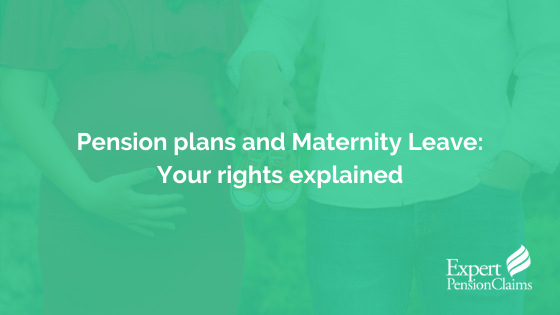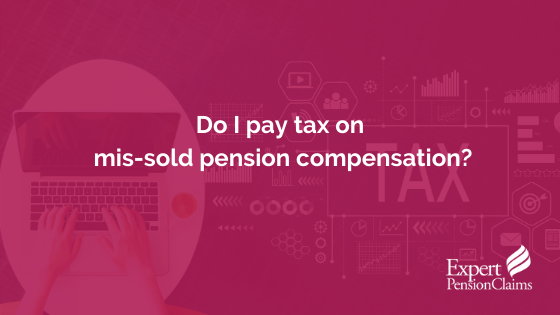Navigating through pregnancy, from finding out you are having the baby to preparing to welcome the newborn home, can be an exciting period and something you should remember fondly. However, while parents consider bringing the baby home safely to be the only priority, ensuring your finances are in order both during and well beyond the pregnancy should be regarded as something high on the list of priorities. Many of the regularities concerning your pension will remain the same during maternity leave. Although, you should keep communication open with your employer to make sure that your contributions are processed as they should be, as well as preparing for any changes to your monthly contributions as time goes on.
You should prepare for what might happen towards the end of your maternity leave. Will you return to work as usual, or will you consider alternative arrangements so that you can spend as much time at home as possible? It is clear that there are a variety of different scenarios for those on maternity leave and preparing for the way yours might unfold to protect your pension is a bigger priority than most realise. Read on to explore your pension rights during maternity leave and how your decisions may affect you.
Pension contributions on Statutory Maternity Pay
When it comes to pension contributions and maternity leave, it is vital to know your rights. If you are pregnant, you are entitled to take up to a year off from work. The amount of income you receive depends on how much time you take off and whether you have used up all 39 weeks of Statutory Maternity Pay (SMP). Your employer may offer better maternity leave benefits, including higher or longer maternity pay as well as an opportunity to take more time off. However, it is important to note that your entitlement to standard pension contributions is limited to the period of SMP. If you are unaware about this when taking more time away from work during your maternity leave, this could gravely affect your pension plan and cause negative consequences later in life.
Thankfully, maternity rights state that you must receive the same workplace benefits while you are on maternity leave – including your right to pension contributions. Due to auto-enrolment pension contributions during maternity leave, which was phased in in 2012, working women who are enrolled on their workplace pension scheme shouldn’t have to take action to make sure their pension contributions are being processed as usual. However, it may be worth connecting with your employer to make sure that this is the case to reduce any mishaps which might arise down the road.
In terms of the amount both you and your employer contribute during maternity leave, your employer should pay the amount that you were receiving before you went on maternity leave. However, you only need to pay pension contributions based on your actual earnings at the time, including any SMP or any top-up pay from your employer. But, remember that if you continue your leave past any time where you have any SMP entitlement, you won’t receive any contributions from your employer unless agreed otherwise. Not having pension contributions during maternity leave salary sacrifice may seem like a less favourable option. However, providing that you have planned a way to make up for these lost contributions, it may be worth it for the time you can spend with your new family.
What does your pension look like after maternity leave?
As previously mentioned, maternity leave differs depending on an individual’s circumstances and choices. Some take shorter leave, while some voluntarily take the maximum time they can have off, even if it means sacrificing pay and pension contributions. However, for others, it can mean a complete change to how they approach their work post-maternity leave. This can be reducing their hours from full time to part-time, switching to self-employment, or even quitting their job entirely to spend the most time with their newborn. For those who make these changes, drawing attention to how you are going to fund your retirement is essential.
Reducing your working hours
If you intend to switch to part-time working, you should be aware that your employer’s pension contributions will be lower, as well as any available income you receive to then contribute yourself. If you are not earning enough to pay Income Tax, you can still receive tax relief on pension contributions up to a maximum of £3,600 a year, or 100% of earnings, depending on how much you earn yearly. This can work particularly well for new mothers who are looking to invest as much time as possible into their child. Although, if you don’t intend to work for a while, it is worth carefully considering how you will finance your retirement.
Switching to self-employment
If you are looking to spend time at home with your baby but believe you can make working for yourself feasible, then you should consider opening a personal pension plan. These can be a great way to fund your life later on as you can either pay into these pensions regularly or make individual lump-sum payments. Make sure to spend time researching and be selective with your pension plan, as there are risky schemes out there, some of which have left pensioners attempting to claw back their retirement funds through SIPP claims.
Planning your immediate finances when having a baby is an obvious priority. However, if you do not have sufficient funds during your retirement, it can affect your child’s life at a later stage. Paying attention to your rights during and after your maternity leave can ensure that your pension contributions are regular and not something you have to worry about later in life.
Don’t forget, if you believe that you may have a claim against your pension provider, contact us today to find out how many others have found a way to move forward.














